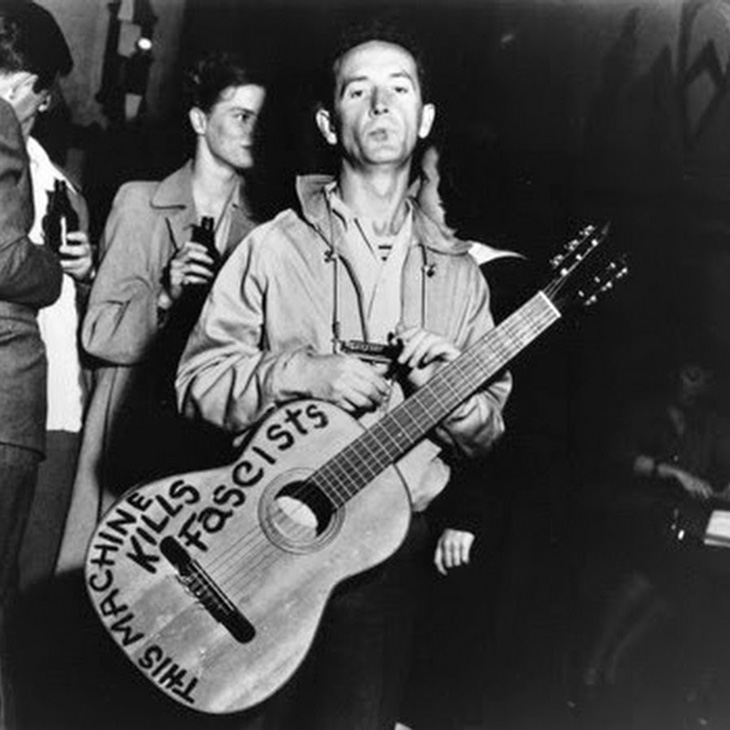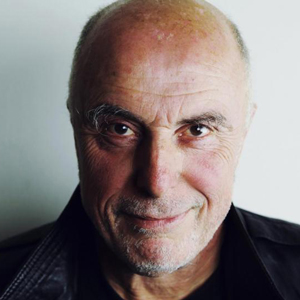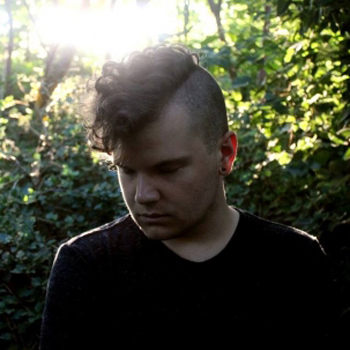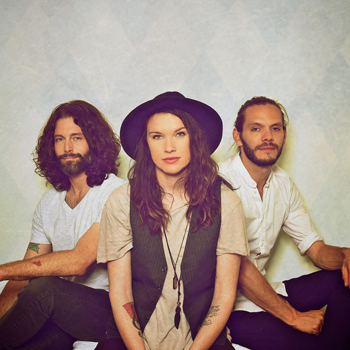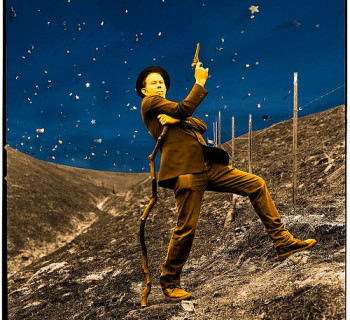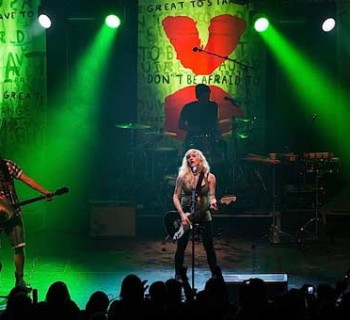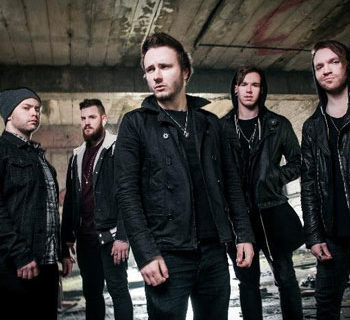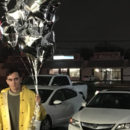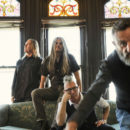First came Woody Guthrie, striding out of the dust bowl with “This machine kills fascists” emblazoned on his guitar. Then there was Pete Seeger, Bob Dylan, John Lennon, Gil Scott-Heron and a whole host of ‘70s politically and socially conscience musicians. Art stemming from unrest has historically produced powerful, enduring and radical results. With the world as it is, you would think we'd be swamped with a new generation of artists eager to ingest, challenge and transform the rich pickings today's post-truth landscape has to offer. Instead, there is a conspicuous absence, or so it seems at first glance.
England's John Baine, who performs under the name Attila the Stockbroker, is quick to agree.
“I have no idea why,” he says, “because there is even more to get angry about than there was when I started.” John is one of a handful of hard-working, constantly touring left-wing artists. His poetry and music cuts to the bone like a rusty saw-blade. See “Maggots One Maggie Nil” released to commemorate the death of Lady Thatcher – a classic bawdy pub-rock anthem with fire in its belly.
I ask him if it's tough keeping true to your ethics whilst trying to make a living in the music business. Has he ever had to compromise? “Not one iota!” he says, “I’m my own agent, booker, PR, record company and book publisher, and it works fine.”
English compatriots Chumawumba, who released their own, more restrained tribute to Thatcher's death, “So long, So Long,” know a thing or two about the ups and downs of the music industry. Guitarist Boff Whalley, in an interview with the Guardian, stated: “We didn’t make any money for at least 10 years…” Then came their sole big hit, Tubthumping, and offers started rolling in. “There was a big car company in the US who were in a dispute with their workers. They gave us a stupid amount of money to play our song in an advert, so we rang the workers’ representative and asked if they wanted the cash instead.” The fee paid by General Motors totalled $70,000, all of which ended up in the hands of anti-corporate activist groups Corpwatch and Indymedia.
Across in Russia, electro art-rockers Pussy Riot having been whipped and imprisoned for their music, stand as a rare example of protest in more totalitarian regimes. Their recently released “Straight Outta Vagina,” a lyrical repost to the newly inaugurated president of the United States, is a slickly produced slice of urban funk-rap.
In the U.S., we have hip-hop duo Dead Prez, whose songs “Police State” and “We Need a Revolution” demonstrate a rarity in a genre that can be accused of forgetting its roots in becoming so commercialised and mainstream that little matters what is actually said and its major proponents satisfied to wallow songs about in money and sex.
“Misogyny is a huge problem in hip-hop,” admitted socialist rapper Marcel Cartier in an interview for BeatKnowledge. Born to American/Finnish parents, Cartier splits his time between Berlin and New York. His powerful response to the Trump administration, “Make America Hate Again” displays the rousing urgency and heart that is so often missing among his contemporaries. "I was always influenced by revolutionaries," he says in the same interview. Tracks such as “Worker's Daydream” showcase Cartier's irresistible beats, powerful vocals and subtly affecting backdrops of sound. Cartier and a small band of rising rappers offer hope that hip-hop may yet rise from the ashes.
Baine says “what the fuck is the point of doing anything using words unless the words mean something?”
Back to England and The Hurriers, whose debut album From Acorns Might Oaks, released in 2015, aims to fulfil their manifesto of “contributing to the overthrow of the corrupt capitalist system through the power of song.” Comparisons to the Clash and The Jam are inevitable but justly earned. Witness the confident rawness of “Truth and Justice” which manages to sound mod and modern at the same time, with the driving back-beat and under-the-radar lyrics that made those classic bands classic.
As to the current dearth of political bands, Hurrier's frontman, Tony Wright, speaks at length about it in an interview with LouderThanWar. “I can’t understand why politics and social commentary isn’t featured much, much more than it is. Perhaps with the consumer society we live in people are happy with their smart phones and their remote controls with hundreds of shit channels to choose from.”
It may be Wright has hit on the salient point. In an age where, for many people, choosing the next box-set to binge-watch is the most difficult decision they'll have to face, making the effort to develop a political conscience at the end of a tiring work-day seems like the hard option. Would you say it's the duty of art to convey a message, I ask Baine, coming full circle. “Of course,” he says, “what the fuck is the point of doing anything using words unless the words mean something?”
Truthfully, no one really knows why few such musicians exist. The increasingly corporate music business must take same of the blame. It is in their nature to appropriate, homogenise and commercialise. Put together with the rise of the talent-show, where fame and a lucrative lifestyle are high rewards for blandness and conservatism, and you have a potent two-pronged attack.
There is also the effect of social media, which provides an alternative outlet for young people which did not exist in the recent past. “I want to hear from them [the current generation]” states veteran protest singer Billy Bragg, in an interview with Sabotagetimes.com, “in which he urges today's youth to follow in his footsteps, “and if they want to communicate in a way that connects with a lot of people and particularly connects with me, then it’s not a blog, it’s not Facebook, it’s not Twitter.”
Politically conscience music is out there but, like many of the most important things in life, you may have to rely on the people to find it.

